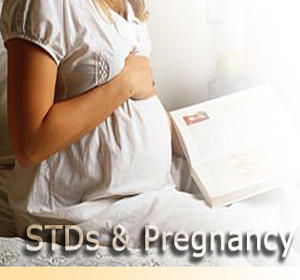Treatment of Herpes for Pregnant Women
August 11, 2010 by Joanna
Filed under Genital Herpes Tips
Herpes is one of the most feared diseases around. Herpes is a kind of sexually transmitted disease. Nobody is safe from this disease called herpes. Even pregnant women can have herpes. However, not because a woman has genital herpes, does not mean she cannot have children. Twenty percent to 25 percent of pregnant women have genital herpes. However, the herpes simplex virus does pose a risk to the unborn child in certain situations. Knowing more about the risks of genital herpes infections during pregnancy helps mother with herpes and their partners make informed decisions to protect themselves and their child from herpes. The herpes virus has several kinds of herpes infections.
The herpes simplex virus causes a variety of herpes infections and has specific herpes characteristics.
In addition to that, herpes has so many risk factors for infant herpes and herpes infections. The risk of transmitting the herpes simplex virus to a baby depends on several factors like the exposure of the infant to herpes lesions during delivery, also whether the mother with herpes has antibodies against herpes to the herpes simplex virus, and lastly whether the infant has time to acquire these antibodies for herpes before delivery. To illustrate how an infant’s herpes risk changes based on the above factors examples on herpes are given below. For example, a woman with herpes who experiences a first outbreak of genital herpes during the third trimester and who has not developed antibodies to the herpes virus by the onset of labor has a low percent chance of transmitting the herpes virus to her infant. Also, on the other hand, a woman who experiences a recurrent outbreak of genital herpes, because she already has antibodies to the herpes virus and has passed them to her unborn child has a 3 percent chance of transmitting the herpes virus to her infant.
The kind of herpes which is more dangerous for the infant is the herpes simplex type virus. The herpes simplex type determines the risk to the infant. A primary or recurrent HERPES SV-1 infection during labor is more easily transmitted to the infant but the disease is limited to the mouth, eyes, and mucous membranes. Primary herpes infection with HERPES SV-2 is more likely to affect the central nervous system causing seizures, meningitis, developmental delay, and death due to herpes. During delivery, herpes is also proven to be very dangerous. Currently all women with herpes who have an outbreak of genital herpes, primary or recurrent, should have a caesarean section to reduce the exposure of the infant to the herpes simplex virus.
 However, even if herpes during pregnancy is dangerous, herpes can still be treated. Antiviral medications for herpes used against herpes viruses work by interfering with viral replication, effectively slowing the replication rate of the herpes virus and providing a greater opportunity for the immune response for herpes to intervene. All herpes drugs in this class depend on the activity of the viral enzyme thymidine kinase to convert the drug sequentially from its prodrug form to monophosphate (with one phosphate group), diphosphate (with two phosphate groups), and finally to the triphosphate (with three phosphate groups) form which interferes with viral DNA replication during herpes.
However, even if herpes during pregnancy is dangerous, herpes can still be treated. Antiviral medications for herpes used against herpes viruses work by interfering with viral replication, effectively slowing the replication rate of the herpes virus and providing a greater opportunity for the immune response for herpes to intervene. All herpes drugs in this class depend on the activity of the viral enzyme thymidine kinase to convert the drug sequentially from its prodrug form to monophosphate (with one phosphate group), diphosphate (with two phosphate groups), and finally to the triphosphate (with three phosphate groups) form which interferes with viral DNA replication during herpes.
There are several herpes prescription antiviral medications for controlling herpes simplex outbreaks, including aciclovir (Zovirax), valaciclovir (Valtrex), famciclovir (Famvir), and penciclovir. For herpes Aciclovir was the original, and prototypical, member of this drug class; it is now available in generic brands at a greatly reduced cost. In herpes treatments, Valaciclovir and famciclovir—prodrugs of aciclovir and penciclovir, respectively—have improved solubility in water and better bioavailability when taken orally. Aciclovir for herpes is the recommended antiviral for suppressive therapy for herpes for use during the last months of pregnancy to prevent transmission of herpes simplex to the neonate in herpes cases of maternal recurrent herpes. The use of valaciclovir and famciclovir, while potentially improving herpes treatment compliance and efficacy, are still undergoing safety evaluation for herpes in this context during herpes outbreaks.





